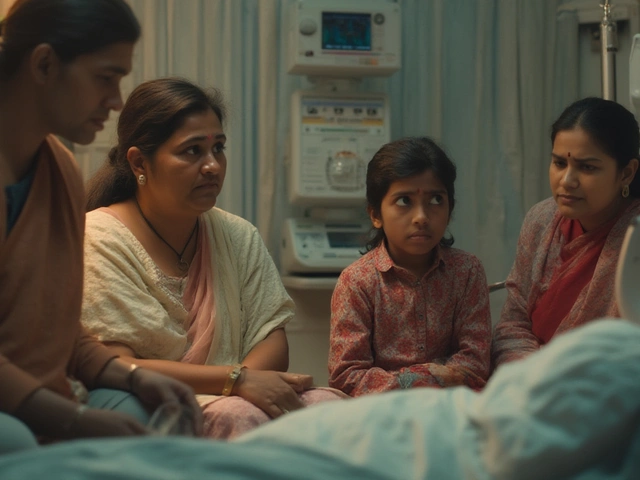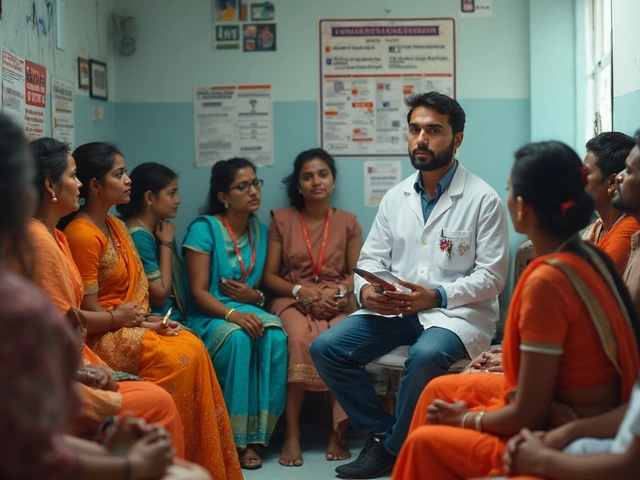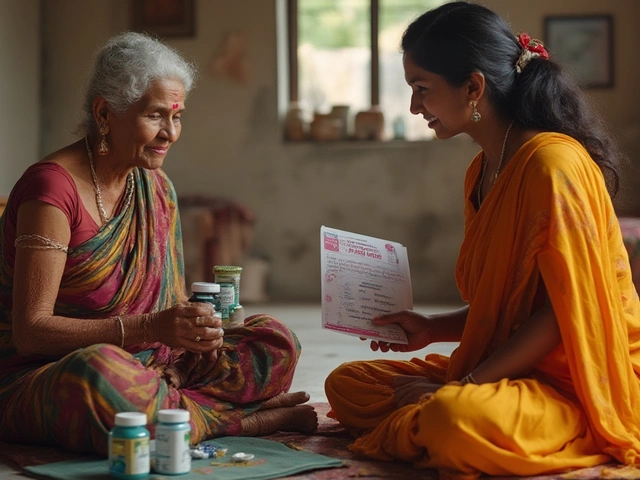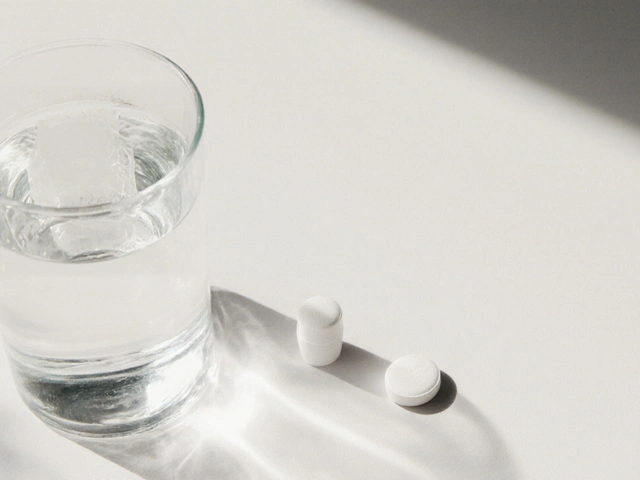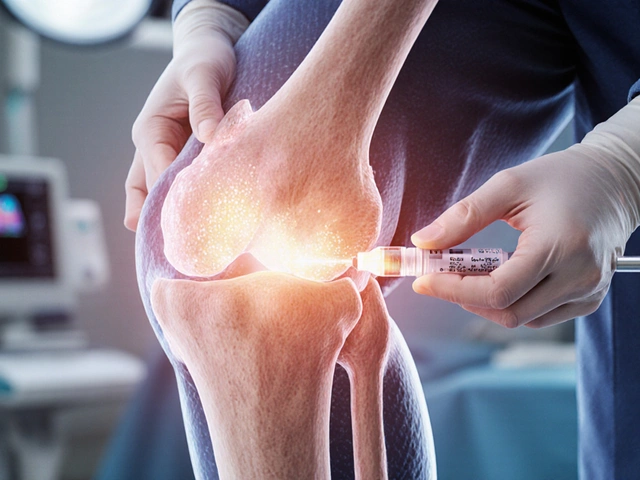Chemotherapy, a common approach to battling cancer, is often as grueling as it is vital. It can attack not just cancer cells, but healthy ones too. This indiscriminate assault leads to an array of side effects that can vary in intensity.
While some effects fade over time, others may linger, raising questions about the body's ability to bounce back. Understanding what to anticipate and how to promote healing can make a significant difference in post-treatment recovery.
- Understanding Chemotherapy Impact
- Short-Term Side Effects
- Long-Term Effects and Recovery
- Tips for Supporting Recovery
Understanding Chemotherapy Impact
Chemotherapy is like a double-edged sword in the realm of cancer treatment. It's designed to target fast-dividing cells, which ideally means cancer cells, but unfortunately, it can't discern them from similarly proliferative healthy cells. This leads to the overarching impact chemotherapy can have on the human body. In the short term, patients might notice physical changes that can be as varied as hair loss to persistent feelings of nausea. Chemotherapy doesn’t just affect the surface level, as its reach penetrates deep into bodily systems, prompting doctors to constantly weigh the benefits against the multitude of potential side effects.
The impact of chemotherapy recovery can feel like riding a roller coaster. While it aims to eliminate harmful cancerous cells, it might also compromise the immune system significantly. This weakening leaves the body vulnerable to infections, an aspect that can sometimes prolong recovery. Notably, one of the body's ways of indicating this is through fatigue, a common complaint among those undergoing treatment. Fatigue, unlike general tiredness, leaves a lasting impression, often sitting like a fog that seems impossible to lift even with rest. Beyond this, there's a complex interplay that affects the blood, leading to anemia or thrombocytopenia, which can cause excessive bleeding due to low platelet count.
Recent studies show approximately 70% of patients experience neuropathy, a nerve damage causing pain, tingling, or numbness, which is another common manifestation of chemotherapy's reach. This can significantly affect one’s quality of life, impacting daily activities. On a neurological level, the term 'chemo brain' is often used to describe the cognitive changes some patients notice. This isn't just an abstract concept but a tangible difficulty in concentrating, remembering details, or remembering where words seem to have evaporated from one’s mind. Such challenges highlight that the journey through chemotherapy is not just physical but deeply mental and emotional too.
Body healing post-chemo involves not only the physical mending of tissues and organs but also a return to a state of metabolic balance. A study published in the "Journal of Clinical Oncology" highlights the dichotomy faced by patients. It states, "Recovery is not a straightforward path for all; the variability in individual genetics, cancer type, treatment dosage, and even ancillary medicines can create a spectrum of outcomes."
Even doctors like Dr. Siddhartha Mukherjee, a renowned oncologist, mention, "The art of chemotherapy involves mastering its effects as much as its applications." This illustrates an understanding of its complex role in treatment.
For long-term survivors, there are additional considerations involving the heart, potentially leading to cardiovascular diseases later in life as the residue of treatment lingers. Here, age can play an adverse role; older patients understandably face different recovery timelines and post-treatment challenges. It's not surprising to find discussions around minimizing toxicity while maximizing efficacy, a challenging balancing act oncologists must navigate. What remains clear, though, is the importance of personalized treatment plans. Each body reacts uniquely, necessitating adjustments that suit individual needs.

Short-Term Side Effects
During chemotherapy, the human body undergoes significant stress. The treatment is highly effective against cancer cells, but it can also impact healthy tissues, leading to a range of short-term side effects. These effects often begin to manifest within hours to days after treatment starts and can be distressing for patients. Commonly, these include nausea, fatigue, and loss of appetite. The extent to which these symptoms occur can vary based on the type of chemo drugs used, the dosage, and individual patient factors.
Fatigue is one of the most prevalent short-term effects of chemotherapy. It's not just a feeling of tiredness, but a profound exhaustion that doesn't easily ebb with rest. This kind of fatigue can affect every aspect of daily life, making even simple tasks feel overwhelming. Patients often describe feeling as though they are wading through thick fog, trying to summon energy that just isn't there. This fatigue stems from the body working overtime to heal from the cellular damage caused by treatment.
Nausea and Vomiting
Nausea and vomiting are classic responses as the body reacts to chemotherapy. Despite advances in anti-nausea medications, many patients still experience this uncomfortable side effect. It is the body's way of rejecting what it perceives as poison. Health professionals have found that aromatherapy and acupuncture can sometimes relieve these symptoms. Interestingly, the severity of nausea and vomiting doesn't always correlate to the intensity of the chemotherapy itself; it's a deeply individual response.
"Chemotherapy can be tough, but patients are tougher. Our bodies show resilience even when it feels like they're failing us," explains Dr. Thomas Lin, a leading oncologist specializing in cancer treatment effects.
Hair loss may occur and can be emotionally taxing for many undergoing chemotherapy. It's not just about the physical appearance but a constant reminder of the ongoing battle with cancer. Hair loss varies depending on the type and dose of drugs used. For some, hair loss is minimal, while others experience more pronounced thinning or complete baldness.
Another short-term side effect to consider is the impact on cognitive function, often referred to as "chemo brain." Patients report memory lapses, difficulty concentrating, and trouble finding the right words. Though not universally experienced, it is significant enough to affect daily life and is a testament to the complex ways chemo affects the body beyond just physical symptoms.
These chemotherapy recovery challenges are part of the journey for many. The variability in how they manifest means doctors often tailor management strategies to the individual, ensuring a supportive approach that acknowledges both the physical and emotional impacts of treatment. Ultimately, understanding these short-term effects and recognizing their temporary nature can empower patients and their families, providing hope amid the challenging landscape of cancer treatment.

Long-Term Effects and Recovery
As brave souls navigate the taxing waters of chemotherapy, a common concern that lingers is the healing process that follows. The impact of chemotherapy recovery extends far beyond immediate side effects, often posing challenges that persist long after treatment ends. One cannot overlook how this potent war against cancer can leave traces over the months and years. Survivors might face issues such as fatigue, cognitive changes often tagged as chemo brain, and nerve damage, medically known as peripheral neuropathy, which can result in numbness or tingling in extremities. These lingering effects are a testament to the rigorous journey the body undergoes during treatment.
Studies have shown diverse outcomes for those undergoing chemotherapy, highlighting both the heartening potential for a near-complete recovery and the sometimes irreversible changes it might bring. A section of patients reports improvement in energy levels and cognitive functions within months, whereas others might take years; some effects, unfortunately, may be permanent. The variability largely depends on individual health, the type of cancer, and the specific drugs used in treatment. For instance, certain chemotherapeutic agents are known for their lasting effects on nerves and the possibility of impacting heart health. Watching out for these and taking proactive measures can be pivotal in recovery body healing post-chemo.
"While chemotherapy can be a powerful tool in the fight against cancer, the journey of healing post-treatment is equally critical," said Dr. Lisa Henry, an oncologist at the forefront of cancer treatment research. "Understanding individual needs and potential long-term effects is crucial for optimizing recovery."Those battling cancer are often advised to work closely with healthcare providers to monitor lingering side effects. Regular follow-ups, tailored exercise protocols, and dietary adjustments might significantly aid in overcoming long-term hurdles. Healing isn't a one-size-fits-all process; it requires a personalized approach based on ongoing assessments and patient feedback.
Moreover, the psychological ramifications of chemotherapy mustn't be neglected. The experience can be as mentally taxing as it is physically, potentially resulting in anxiety or depression. Acknowledging and seeking support for mental health is an essential part of the healing journey. Engaging in support groups, therapy, or even mindfulness and relaxation techniques can offer much-needed relief and help build resilience. Addressing these facets of recovery, one learns that healing is multifaceted and that physical recovery is intricately linked to emotional well-being.
Data gathered suggests a progressive shift in recovery approaches, emphasizing an integrative view of health. A notable figure indicates that up to 60% of survivors report improved quality of life with holistic care strategies focusing on both physical health and mental stamina. By learning from these experiences, new pathways open for creating supportive, effective recovery frameworks, hopefully improving outcomes for many in similar shoes.

Tips for Supporting Recovery
Recovering from chemotherapy is a multifaceted journey that demands patience, resilience, and a proactive approach to health. The road to regaining strength can be influenced by various factors including the type of cancer, the specific chemotherapy regimen, and individual health conditions. A strong recovery plan is a cornerstone for enhancing your body's ability to bounce back.
First and foremost, nourishing your body with the right food is critical. Chemotherapy often takes a toll on one’s appetite, but it's crucial to focus on a balanced diet rich in essential nutrients. Proteins, healthy fats, and whole grains should be regular features on your plate. They aid in repairing and rebuilding tissues, while also providing energy. For those struggling with eating due to nausea, try smaller meals more frequently throughout the day. Hydration is equally important; aim to drink at least eight to ten glasses of water daily to help flush out toxins.
Physical activity is another key element in recovery. While it might seem counterintuitive when energy levels are low, light to moderate exercises such as walking or yoga can significantly enhance your stamina and improve mood by releasing endorphins. It's important to listen to your body and start slow, gradually increasing the intensity as you feel more capable. Engaging in regular physical activity can also promote better sleep—a crucial component of recovery.
Mental health shouldn't be overlooked. Coping with the aftermath of chemotherapy can be mentally taxing. Implementing stress-reducing techniques, like meditation or deep breathing exercises, helps maintain mental clarity and emotional balance. Engaging with a support group or talking to a counselor provides a platform to express feelings and receive guidance. As the renowned psychologist Carl Jung once said,
“Knowing your own darkness is the best method for dealing with the darknesses of other people.”Embracing emotional support can be as transformative as any physical recovery strategy.
Don’t underestimate the role of follow-up care. Regular check-ups with your healthcare team can help monitor progress and address any side effects that emerge. Staying informed about your health condition and treatments validates your path to recovery. Keep a recovery journal; jot down symptoms, emotions, and questions for your doctor. This record can be a valuable tool during consultations.
Finally, integrating supplements into your routine can fortify your recovery plan. However, it's imperative to discuss any supplements with your healthcare provider before starting them to ensure they won’t interfere with ongoing treatments. Vitamins such as B-complex, C, D, and minerals like zinc play a role in boosting the immune system. Utilizing a combination of these practices establishes a solid groundwork for the body to heal from the challenges of chemotherapy.

